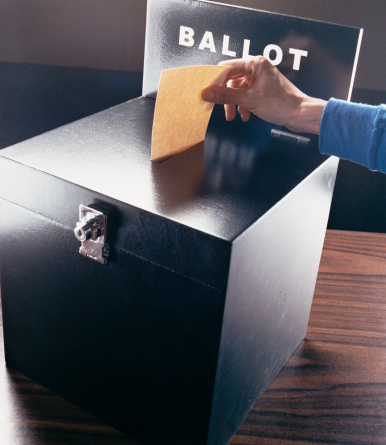Voter ID Law Halted – For Now
Yesterday’s decision by Judge Robert Simpson to temporarily halt the new controversial voter ID law in time for the November election is a big win for LGBT groups that have been pushing Pennsylvania to reconsider what it would mean for thousands of people who would lose the right to vote. “I am still not convinced … that there will be no voter disenfranchisement” if the law took effect immediately, Simpson wrote. It’s estimated that those hardest hit by the restriction would be the elderly and minority groups, including transgender voters whose identification may not match their physical appearance.
And while the law’s expected to go into full effect next year, Philly’s State Rep. Babette Josephs is hopeful that a more permanent ruling is applied to what she’s calling a breach of democracy.
“With his first ruling, Judge Simpson abdicated his judicial responsibility in the hope that someone else would make the decision for him on this controversial law,” says Josephs. “The Pennsylvania Supreme Court then did the same by sending the case back to the lower court. It took a second try, but Judge Simpson finally acted, and I’m glad of the result.”
Under the ruling, the same rules that were in effect for the primary election will be in effect for the Nov. 6 election, meaning that election workers will ask to see valid photo ID, but if voters do not have it, they still will be allowed to vote – and not by a provisional ballot as required by the law: they can vote in the booth.
“There are international implications to today’s decision, as well as domestic ones,” Josephs says. “America is the world’s most powerful democracy, and the hallmark of democracy is voting. We’re known for our universal suffrage and other countries look up to us. Today’s ruling reaffirms that government will stand up for its voters, despite those who intended the law to suppress the vote.”
Josephs has pointed to the law’s sponsor, Rep. Daryl Metcalfe, who said last month that anyone who fails to obtain a photo ID for voting was lazy.
“It is bad enough that countless news stories have documented people’s difficulties, frustrations and inability to obtain photo identification for voting, but then to have the prime sponsor of the law call those hardworking, responsible Pennsylvania citizens ‘lazy,’ shows nothing except how much disdain Mr. Metcalfe has for ordinary, hardworking people,” she says. “Citizens have documented hours, even days devoted to obtaining necessary paperwork, and not all of them have been successful in spite of their strenuous efforts.”
Many have complained about not having the proper documentation or having to take time off from work to wait in long lines for photo IDs. Veterans have also been impacted by the vote, as their IDs wouldn’t be accepted since they don’t include a valid address.
Republican sponsors of the bill have defended their actions all along, saying that the law would prevent voter fraud, an issue that others argue is practically nonexistent.
But the fact that the voter ID television ads are still being run could disenfranchise voters who may fear being turned away at the polls even after the judge’s decision yesterday. The message Josephs and opponents of the law would like to send is get out the vote. Show up. Cast your vote. The poll workers cannot turn you away.
“This commercial has offended people from the moment it was put on air,” says Josephs. “It calls into question people’s patriotism and their constitutional right to vote, instead of clearly explaining the new voter ID law. Now the law has been stopped for November, but the advertisements might give some voters the impression that they still must have photo ID in order to cast their ballots. Unless this is the first time you have voted in this particular polling place, you need only sign the poll book, and go into the voting booth. I want the State Department to stop confusing the Pennsylvania citizens immediately.”
Do you have questions about the voter ID law? Click here for a summary of what it means.
And click here to find out where to vote on November 6.



